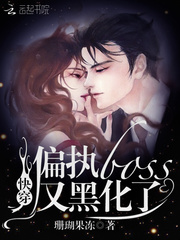CHAPTER XII
您可以在百度里搜索“Now It Can Be Told 艾草文学(www.321553.xyz)”查找最新章节!
CHAPTER XII
The quickest way to the cathedral is down a turning on the right-hand side of the Street of the Three Pebbles. Charlie's bar was on the left-hand side of the street, always crowded after six o'clock by officers of every regiment, drinking egg-nogs, Martinis, Bronxes, sherry cobblers, and other liquids, which helped men marvelously to forget the beastliness of war, and gave them the gift of laughter, and made them careless of the battles which would have to be fought. Young staff-officers were there, explaining carefully how hard worked they were and how often they went under shell-fire. The fighting officers, English, Scottish, Irish, Welsh, jeered at them, laughed hugely at the latest story of mirthful horror, arranged rendezvous at the Godebert restaurant, where they would see the beautiful Marguerite (until she transferred to la cathedrale in the same street) and our checks which Charlie cashed at a discount, with a noble faith in British honesty, not often, as he told me, being hurt by a “stumor.” Charlie's bar was wrecked by shell-fire afterward, and he went to Abbeville and set up a more important establishment, which was wrecked, too, in a fierce air raid, before the paint was dry on the walls.
The cathedral was a shrine to which many men and women went all through the war, called into its white halls by the spirit of beauty which dwelt there, and by its silence and peace. The great west door was screened from bomb-splinters by sand-bags piled high, and inside there were other walls of sand-bags closing in the sanctuary and some of the windows. But these signs of war did not spoil the majesty of the tall columns and high roof, nor the loveliness of the sculptured flowers below the clerestory arches, nor the spiritual mystery of those great, dim aisles, where light flickered and shadows lurked, and the ghosts of history came out of their tombs to pace these stones again where five, six, seven centuries before they had walked to worship God, in joy or in despair, or to show their beauty of young womanhood—peasant girl or princess—to lovers gazing by the pillars, or to plight their troth as royal brides, or get a crown for their heads, or mercy for their dead bodies in velvet-draped coffins.
Our soldiers went in there, as many centuries before other English soldiers, who came out with Edward the Black Prince, by way of Crecy, or with Harry the King, through Agincourt. Five hundred years hence, if Amiens cathedral still stands, undamaged by some new and monstrous conflict in a world of incurable folly, the generation of that time will think now and then, perhaps, of the English lads in khaki who tramped up the highway of this nave with their field-caps under their arms, each footstep leaving the imprint of a wet boot on the old flagstones, awed by the silence and the spaciousness, with a sudden heartache for a closer knowledge, or some knowledge, of the God worshiped there—the God of Love—while, not far away, men were killing one another by high explosives, shells, hand-grenades, mines, machine-guns, bayonets, poison-gas, trench-mortars, tanks, and, in close fighting, with short daggers like butchers' knives, or clubs with steel knobs. I watched the faces of the men who entered here. Some of them, like the Australians and New-Zealanders, unfamiliar with cathedrals, and not religious by instinct or training, wandered round in a wondering way, with a touch of scorn, even of hostility, now and then, for these mysteries—the chanting of the Office, the tinkling of the bells at the high mass—which were beyond their understanding, and which they could not link up with any logic of life, as they knew it now, away up by Bapaume or Bullecourt, where God had nothing to do, seemingly, with a night raid into Boche lines, when they blew a party of Germans to bits by dropping Stoke bombs down their dugout, or with the shrieks of German boys, mad with fear, when the Australians jumped on them in the darkness and made haste with their killing. All the same, this great church was wonderful, and the Australians, scrunching their slouch-hats, stared up at the tall columns to the clerestory arches, and peered through the screen to the golden sun upon the high-altar, and touched old tombs with their muddy hands, reading the dates on them—1250, 1155, 1415—with astonishment at their antiquity. Their clean-cut hatchet faces, sun—baked, tanned by rain and wind, their simple blue-gray eyes, the fine, strong grace of their bodies, as they stood at ease in this place of history, struck me as being wonderfully like all that one imagines of those English knights and squires—Norman-English—who rode through France with the Black Prince. It is as though Australia had bred back to the old strain. Our own English soldiers were less arresting to the eye, more dapper and neat, not such evident children of nature. Gravely they walked up the aisles, standing in groups where a service was in progress, watching the movements of the priests, listening to the choir and organ with reverent, dreamy eyes. Some of them—country lads—thought back, I fancy, to some village church in England where they had sung hymns with mother and sisters in the days before the war. England and that little church were a long way off now, perhaps all eternity away. I saw one boy standing quite motionless, with wet eyes, without self-consciousness. This music, this place of thoughtfulness, had made something break in his heart... Some of our young officers, but not many, knelt on the cane chairs and prayed, face in hands. French officers crossed themselves and their medals tinkled as they walked up the aisles. Always there were women in black weeds kneeling before the side—altars, praying to the Virgin for husbands and sons, dead or alive, lighting candles below holy pictures and statues. Our men tiptoed past them, holding steel hats or field—caps, and putting their packs against the pillars. On the steps of the cathedral I heard two officers talking one day.
“How can one reconcile all this with the war?”
“Why not?... I suppose we're fighting for justice and all that. That's what The Daily Mail tells us.”
“Seriously, old man. Where does Christ come in?”
“He wasn't against righteous force. He chased the money-changers out of the Temple.”
“Yes, but His whole teaching was love and forgiveness. 'Thou shalt not kill.' 'Little children, love one another!' 'Turn the other cheek.'. .. Is it all sheer tosh? If so, why go on pretending?... Take chaplains in khaki—these lieutenant-colonels with black crosses. They make me sick. It's either one thing or the other. Brute force or Christianity. I am harking back to the brute—force theory. But I'm not going to say 'God is love' one day and then prod a man in the stomach the next. Let's be consistent.”
“The other fellows asked for it. They attacked first.”
“Yes, but we are all involved. Our diplomacy, our secret treaties, our philosophical dope over the masses, our imperial egotism, our trade rivalries—all that was a direct challenge of Might against Right. The Germans are more efficient and more logical—that's all. They prepared for the inevitable and struck first. We knew the inevitable was coming, but didn't prepare, being too damned inefficient... I have a leaning toward religion. Instinctively I'm for Christ. But it doesn't work in with efficiency and machine-guns.”
“It belongs to another department, that's all. We're spiritual and animal at the same time. In one part of my brain I'm a gentleman. In another, a beast. It's conflict. We can't eliminate the beast, but we can control it now and then when it gets too obstreperous, and that's where religion helps. It's the high ideal—otherworldliness.”
“The Germans pray to the same God. Praise Christ and ask for victory.”
“Let them. It may do them a bit of good. It seems to me God is above all the squabbles of humanity—doesn't care a damn about them!—but the human soul can get into touch with the infinite and the ideal, even while he is doing butcher's work, and beastliness. That doesn't matter very much. It's part of the routine of life.”
“But it does matter. It makes agony and damnation in the world. It creates cruelty and tyranny, and all bloody things. Surely if we believe in God—anyhow in Christian ethics—this war is a monstrous crime in which all humanity is involved.”
“The Hun started it... Let's go and give the glad eye to Marguerite.”
At night, in moonlight, Amiens cathedral was touched with a new spirituality, a white magic beyond all words of beauty. On many nights of war I walked round the cathedral square, looking up at that grand mass of masonry with all its pinnacles and buttresses gleaming like silver and its sculptured tracery like lacework, and a flood of milky light glamorous on walls in which every stone was clear-cut beyond a vast shadow-world. How old it was! How many human eyes through many centuries had come in the white light of the moon to look at this dream in stone enshrining the faith of men! The Revolution had surged round these walls, and the screams of wild women, and their shrill laughter, and their cries for the blood of aristocrats, had risen from this square. Pageants of kingship and royal death had passed across these pavements through the great doors there. Peasant women, in the darkness, had wept against these walls, praying for God's pity for their hearts. Now the English officers were lighting cigarettes in the shelter of a wall, the outline of their features—knightly faces—touched by the moonlight. There were flashes of gun-fire in the sky beyond the river.
“A good night for a German air raid,” said one of the officers.
“Yes, a lovely night for killing women in their sleep,” said the other man.
The people of Amiens were sleeping, and no light gleamed through their shutters. Now It Can Be Told




